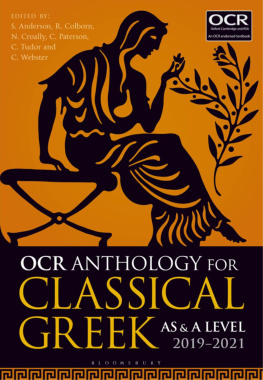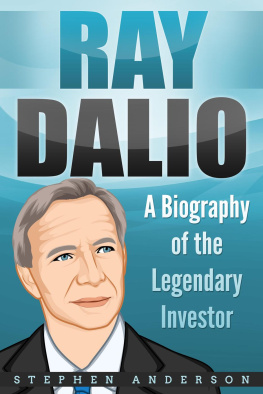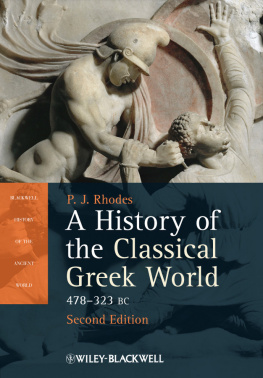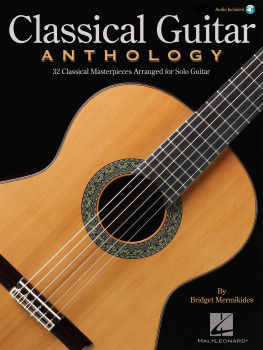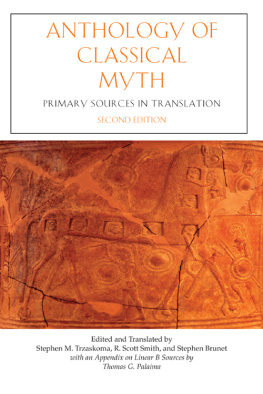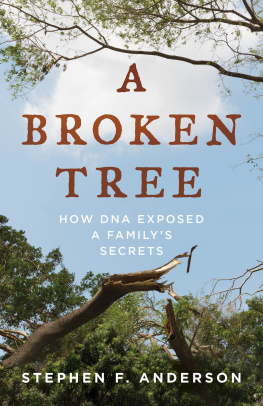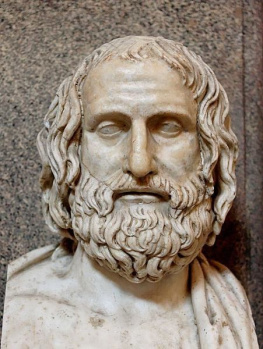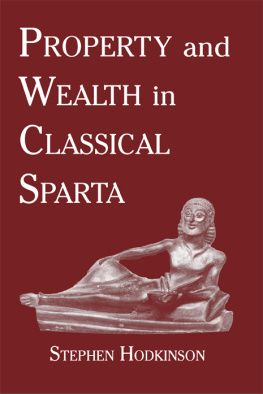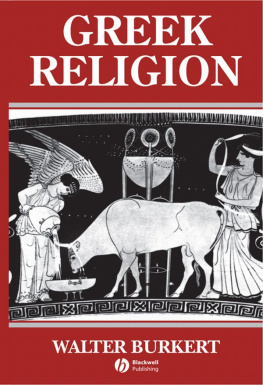Stephen Anderson - OCR Anthology for Classical Greek AS and A Level: 2019-2021
Here you can read online Stephen Anderson - OCR Anthology for Classical Greek AS and A Level: 2019-2021 full text of the book (entire story) in english for free. Download pdf and epub, get meaning, cover and reviews about this ebook. year: 2019, publisher: Bloomsbury, genre: Romance novel. Description of the work, (preface) as well as reviews are available. Best literature library LitArk.com created for fans of good reading and offers a wide selection of genres:
Romance novel
Science fiction
Adventure
Detective
Science
History
Home and family
Prose
Art
Politics
Computer
Non-fiction
Religion
Business
Children
Humor
Choose a favorite category and find really read worthwhile books. Enjoy immersion in the world of imagination, feel the emotions of the characters or learn something new for yourself, make an fascinating discovery.
- Book:OCR Anthology for Classical Greek AS and A Level: 2019-2021
- Author:
- Publisher:Bloomsbury
- Genre:
- Year:2019
- Rating:3 / 5
- Favourites:Add to favourites
- Your mark:
- 60
- 1
- 2
- 3
- 4
- 5
OCR Anthology for Classical Greek AS and A Level: 2019-2021: summary, description and annotation
We offer to read an annotation, description, summary or preface (depends on what the author of the book "OCR Anthology for Classical Greek AS and A Level: 2019-2021" wrote himself). If you haven't found the necessary information about the book — write in the comments, we will try to find it.
OCR Anthology for Classical Greek AS and A Level: 2019-2021 — read online for free the complete book (whole text) full work
Below is the text of the book, divided by pages. System saving the place of the last page read, allows you to conveniently read the book "OCR Anthology for Classical Greek AS and A Level: 2019-2021" online for free, without having to search again every time where you left off. Put a bookmark, and you can go to the page where you finished reading at any time.
Font size:
Interval:
Bookmark:
OCR Anthology
for Classical Greek
AS and A Level
The following titles are available from Bloomsbury for the OCR prescribed texts in Latin and Greek for examination June 2019 to June 2021
Apuleius Metamorphoses V: A Selection with introduction, notes and vocabulary by Stuart R. Thomson
Cicero Philippic II: A Selection, with introduction, notes and vocabulary by Christopher Tanfield
Ovid Amores II: A Selection, with introduction, notes and vocabulary by Alfred Artley
Horace Odes: A Selection, with introduction, notes and vocabulary by John Godwin
Horace Satires: A Selection, with introduction, notes and vocabulary by John Godwin
Tacitus Histories IV: A Selection, with introduction by Ellen C. OGorman and notes and vocabulary by Benedict Gravell
Virgil Aeneid XI: A Selection, with introduction, notes and vocabulary by Ashley Carter
OCR Anthology for Classical Greek AS and A-level, covering the prescribed texts by Aristophanes, Euripides, Herodotus, Homer, Plato and Xenophon, with introduction, notes and vocabulary by Stephen Anderson, Rob Colborn, Neil Croally, Charlie Paterson, Chris Tudor and Claire Webster
Supplementary resources for these volumes can be found at
www.bloomsbury.com/OCR-editions-2019-2021
Please type the URL into your web browser and follow the instructions to access the Companion Website. If you experience any problems, please contact Bloomsbury at contact@bloomsbury.com
OCR Anthology
for Classical Greek
AS and A Level: 20192021
Selections from
Herodotus,Histories, Book 7
Plato,Phaedo
Xenophon,Anabasis, Book 4
Homer,Iliad9 and 18
Euripides,Medea
Aristophanes,Peace
With introduction, commentary notes and vocabulary by
Stephen Anderson, Rob Colborn, Neil Croally, Charlie Paterson, Chris Tudor and Claire Webster

The text and notes found in this volume are designed to guide any student who has mastered Greek up to GCSE level and wishes to read these selections in the original.
The editions are, however, particularly designed to support students who are reading the set texts in preparation for OCRs AS and A-Level Greek examination from June 2019 to 2021. (Please note this volume uses AS to refer indiscriminately to AS and the first year of A Level, i.e. Group 1.)
Herodotus, Histories
Introduction, commentary notes and vocabulary by Claire Webster
AS: Book 7: 510
A Level: Book 7: 3435, 3839, 4552, 101105
Plato, Phaedo
Introduction, commentary notes and vocabulary by Rob Colborn
AS: 62c9 to 67e6
A Level: 69e6 to 75c5
Xenophon, Anabasis
Introduction, commentary notes and vocabulary by Stephen Anderson
A Level: Book 4: 78
Homer, Iliad
Introduction, commentary notes and vocabulary by Chris Tudor
AS: Book 18: 138, 50238
A Level: Book 9: 182431
Euripides, Medea
Introduction, commentary notes and vocabulary by Neil Croally
AS: 271356, 663758, 869905
A Level: 214270, 364409, 10191055, 11361230
Aristophanes, Peace
Introduction, commentary notes and vocabulary by Charlie Paterson
A Level: 110, 1361, 180336
Each edition contains a detailed introduction to the context of the ancient work. The notes aim to help students bridge the gap between GCSE and AS or A-Level Greek, and focus therefore on the harder points of grammar, word order and idiom. At the end of each edition is a full vocabulary list for all the words contained in the prescribed sections, with words in OCRs Defined Vocabulary List for AS-Level Greek flagged by means of an asterisk.
The author and his work
Information about the life of Herodotus is scant. He himself tells us that he came from Halicarnassus (now Bodrum in Turkey), a Greek colony on the southwest coast of Asia Minor under the rule of the Persian empire. Ancient sources add that he came from a leading family and was related to an epic poet called Panyassis. The tradition stated that he was driven into exile for opposing a tyrant of Halicarnassus called Lygdamis, and opposition to tyranny certainly marks his work throughout. There are no precise dates for his life, but deducing from his writing we can guess that he was born some time in the 480s BC and lived into the 420s, since he refers to events in the Peloponnesian War, which began in 431. He travelled widely, apparently as far as Elephantine in Egypt, and certainly spent some time in Athens before becoming a citizen of the city of Thurii in Magna Graecia.
In the introduction (known as a proem) to his great work, Herodotus writes:
, , , , , . (Histories 1.1)
This is the setting forth of the inquiry of Herodotus of Halicarnassus, so that the things done by men might not fade away with time, and so that the great and marvellous deeds, some displayed by the Greeks, some by the barbarians, might not lose their renown, with regard to both other matters and to the reason why they went to war with each other.
The key word here is : inquiry. Herodotus grew up in an environment in which the scientific appraisal of natural phenomena was flowering. The scientists and thinkers whom we know as the pre-Socratic philosophers, and whom Aristotle termed the , who came from Ionia and Magna Graecia (Greek colonies in what is now Turkey and parts of Italy and Sicily), were thinking about how the world works and wondering about mans relation to it in the century before Herodotus birth and during his lifetime. Thinkers such as Heraclitus and Anaximander of Ephesus, Thales and Anaximenes of Miletus, and Parmenides and Zeno of Elea questioned assumptions and the evidence of the senses while speculating on such questions as what the universe is made from, whether there is one god or many gods and what form any divine being might take. It is from this milieu of fervent innovation that Herodotus work springs. The pre-Socratics, when they wrote (and only fragments survive), seem to have written almost exclusively in verse, and indeed verse seems to have been the natural medium for any kind of elevated writing in the early history of written Greek. Herodotus immediate predecessors as writers of prose were the so-called logographoi or logopoioi, whose work again only exists now in fragments. These writers compiled genealogical, ethnographic and geographical material, often casting their writings in terms of a voyage describing both the topography of the area visited, and the customs and characteristics of the people encountered. Herodotus mentions one of these, Hecataeus of Miletus, who wrote two works, one a geographical treatise, the (Journey round the Earth), and the other a book of mythical geneaologies. Works such as these, and other technical treatises, were quite different from an undertaking with the scope of Herodotus Histories, and it is right to regard Herodotus as a radical and innovative writer. John Herington says that Herodotus Histories stands at the frontier where two eras meet: the era in which poetry and legend were the prime media for the interpretation of our world, and the era of prose, of history, of rational enquiry generally.
In the proem, Herodotus states that he is concerned to record both and . We can presume that the latter means heroic deeds in war, as Herodotus aim is that they might not become : this word, with its echo of the Homeric concept of kleos, places us in the context of epic heroism and the memorializing of the deeds of the heroes in song. There is a real sense in which Herodotus is seeking to emulate the author of the
Next pageFont size:
Interval:
Bookmark:
Similar books «OCR Anthology for Classical Greek AS and A Level: 2019-2021»
Look at similar books to OCR Anthology for Classical Greek AS and A Level: 2019-2021. We have selected literature similar in name and meaning in the hope of providing readers with more options to find new, interesting, not yet read works.
Discussion, reviews of the book OCR Anthology for Classical Greek AS and A Level: 2019-2021 and just readers' own opinions. Leave your comments, write what you think about the work, its meaning or the main characters. Specify what exactly you liked and what you didn't like, and why you think so.

